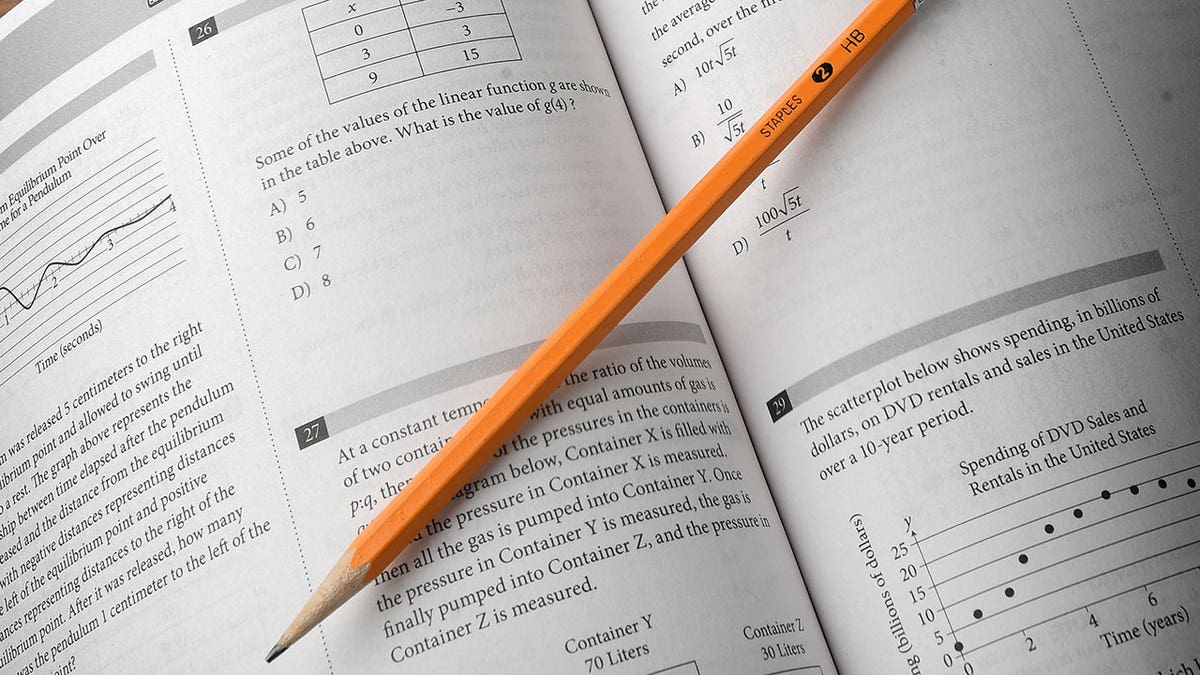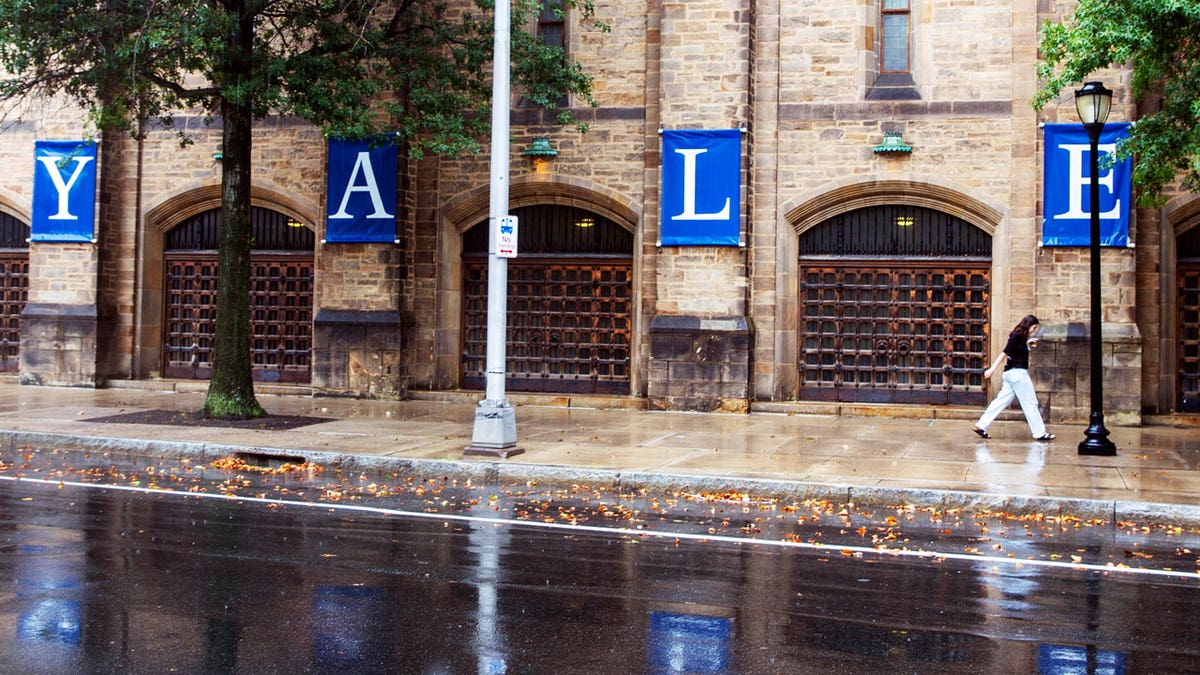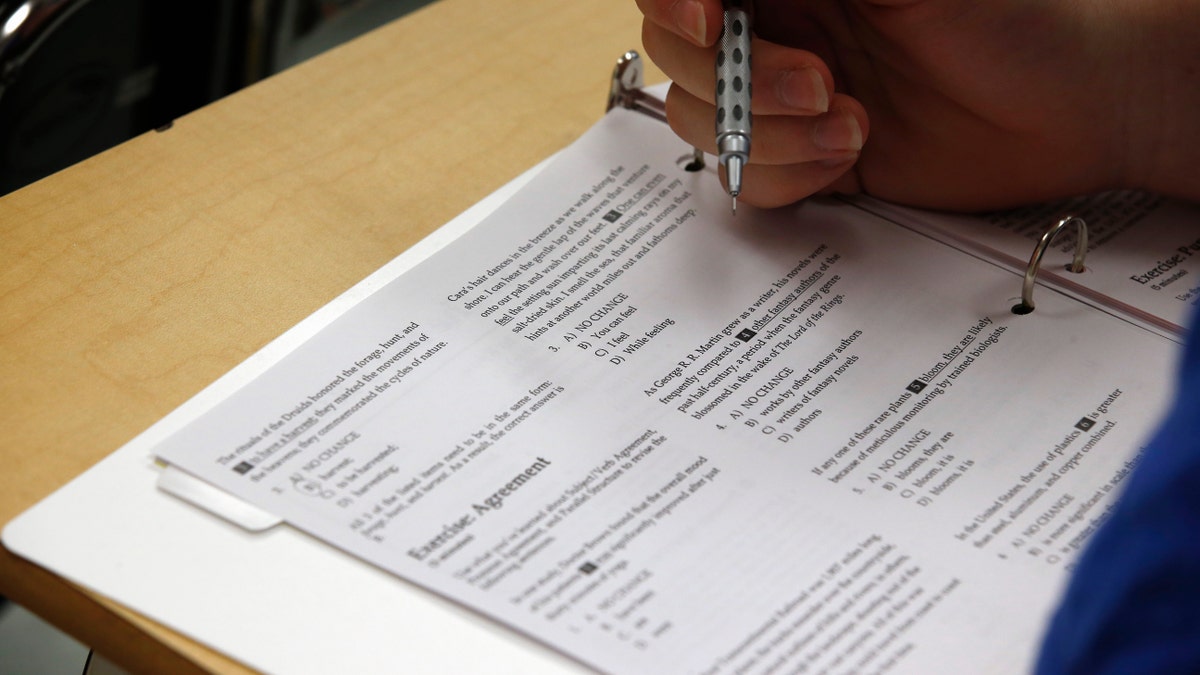New test replacing SAT and ACT in Florida
New College of Florida interim president Richard Corcoran discusses why the DeSantis-backed public liberal arts school will now accept the Classic Learning Test.
Returns to standardized testing have some students riddled with anxiety and confusion during the college admissions process, leaving them to wonder whether they should take a crack at the SAT and ACT or forego testing altogether.
A recent Washington Post report uncovered that anxiety among some parents and students as the post-pandemic age attempts its return to some semblance of normalcy in academia.
"You could be expecting and preparing for a certain way to apply to a college and present yourself — but then they change it mid-application process," 17-year-old Kai Talbert told the outlet.

An SAT college entrance exam preparation book, on Aug. 6, 2017, in Melville, New York. (Thomas A. Ferrara/Newsday RM via Getty Images)
"That’s really confusing. It can set back a lot of people."
Before the COVID pandemic changed standard practice, most colleges and universities required testing – either the SAT or the ACT – for students to be considered for admission.
Since social distancing practices and school closures altered such procedures, many schools dropped their standardized testing requirements, and many have yet to reinstate those requirements.
Some universities, including Yale, Dartmouth, the University of Texas at Austin, Georgetown University and the Massachusetts Institute of Technology (MIT), among others, have since reinstated or declared their intention to reinstate college admissions testing as an element of assessing a student's college readiness.
OPINION: STANDARDIZED TESTS AREN'T THE PROBLEM. HERE'S WHAT IS REALLY HOLDING STUDENTS BACK

Yale and other institutions have announced returns to standardized testing requirements. Harvard, meanwhile, intends to keep its test-optional policy for a few more admissions cycles. (AP Photo/Ted Shaffrey, File)
But inconsistent requirements across institutions have ignited concerns from applicants like Talbert who are left to sort through their list of preferred schools and determine whether these schools' policies require testing, do not look at testing when considering applicants (test-blind) or have a test-optional approach.
"The patchwork of policies is wreaking havoc on applicants, parents and college admissions consultants nationwide, who are being forced to recalculate where and how they are willing to apply — or what to tell anxious teenagers about whether to test, retest or skip testing entirely — as decisions keep rolling out in real time," the Post report stated.
Among those discussed is Laurie Kopp Weingarten, founder of One-Stop College Counseling in New Jersey, who said her new approach to helping students get ready to apply involves going down the list of colleges and noting their current testing policy and whether that policy is likely or unlikely to change soon.

The COVID-19 pandemic changed the way students approached college admissions, as a number of institutions dropped standardized testing requirements. (AP Photo/Alex Brandon)
A quick glance at a table included in the report showcases the stark contrast between different schools' requirements, including, perhaps more strikingly, that students must be expected to know when or if certain testing policies will expire.
Harvard, for instance, intends to keep its test-optional policy through the 2025-2026 application cycle, but students would have to remain vigilant of any changes after that admission cycle ends.
Some departments or programs could also have different requirements depending on the institution.
CLICK HERE TO GET THE FOX NEWS APP
College admissions have undergone other significant changes in recent years, including challenges to legacy-based admissions practices – which involve institutional standards that more strongly consider students whose family members have alumni connections as opposed to those who do not.
Most notably, the Supreme Court upended affirmative action practices in college admissions with a landmark decision last year.











































